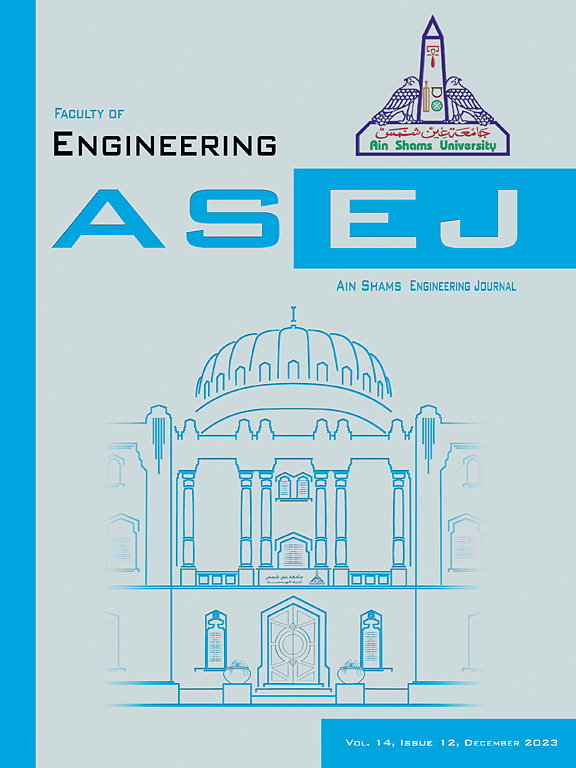An optimized preprocessing Gauss-Seidel iterative detection algorithm for massive MIMO systems
IF 6
2区 工程技术
Q1 ENGINEERING, MULTIDISCIPLINARY
引用次数: 0
Abstract
The mini-mum mean square error(MMSE) algorithm nearly achieves optimal performance in massive Multiple-Input Multiple-Output (MIMO) detection, but its direct application is limited by the computational burden of high-dimensional matrix inversions. we propose an Optimized Preprocessing Gauss-Seidel (OPGS) iterative detection algorithm in this paper. The OPGS algorithm transforms the MMSE filter matrix into a linear equation, reducing complexity and eliminating the need for direct inversion. Additionally, by introducing a banded matrix to optimize the filter vector, we derived a novel iterative method that significantly improves both performance and convergence speed. We tested the proposed algorithm under various conditions, and simulations show that it requires fewer iterations to achieve detection performance similar to the MMSE algorithm under the same conditions. Specifically, in system with , after two iterations, the performance between our algorithm and the MMSE method is only 0.04 dB. Notably, this result was accomplished with a minimal iteration.
大规模MIMO系统的优化预处理高斯-塞德尔迭代检测算法
最小均方误差(MMSE)算法在大规模多输入多输出(MIMO)检测中几乎达到了最优性能,但其直接应用受到高维矩阵反演计算量的限制。本文提出了一种优化的预处理高斯-塞德尔(OPGS)迭代检测算法。OPGS算法将MMSE滤波矩阵转换为线性方程,降低了复杂度,消除了直接反演的需要。此外,通过引入带状矩阵来优化滤波器向量,我们推导了一种新的迭代方法,该方法显著提高了性能和收敛速度。我们在各种条件下对所提出的算法进行了测试,仿真结果表明,在相同条件下,该算法只需较少的迭代即可达到与MMSE算法相似的检测性能。具体而言,在256×32系统中,经过两次迭代,我们的算法与MMSE方法的性能差仅为0.04 dB。值得注意的是,这个结果是用最少的迭代完成的。
本文章由计算机程序翻译,如有差异,请以英文原文为准。
求助全文
约1分钟内获得全文
求助全文
来源期刊

Ain Shams Engineering Journal
Engineering-General Engineering
CiteScore
10.80
自引率
13.30%
发文量
441
审稿时长
49 weeks
期刊介绍:
in Shams Engineering Journal is an international journal devoted to publication of peer reviewed original high-quality research papers and review papers in both traditional topics and those of emerging science and technology. Areas of both theoretical and fundamental interest as well as those concerning industrial applications, emerging instrumental techniques and those which have some practical application to an aspect of human endeavor, such as the preservation of the environment, health, waste disposal are welcome. The overall focus is on original and rigorous scientific research results which have generic significance.
Ain Shams Engineering Journal focuses upon aspects of mechanical engineering, electrical engineering, civil engineering, chemical engineering, petroleum engineering, environmental engineering, architectural and urban planning engineering. Papers in which knowledge from other disciplines is integrated with engineering are especially welcome like nanotechnology, material sciences, and computational methods as well as applied basic sciences: engineering mathematics, physics and chemistry.
 求助内容:
求助内容: 应助结果提醒方式:
应助结果提醒方式:


